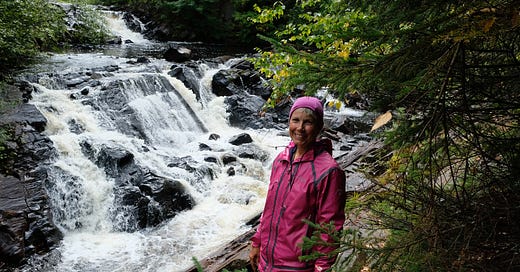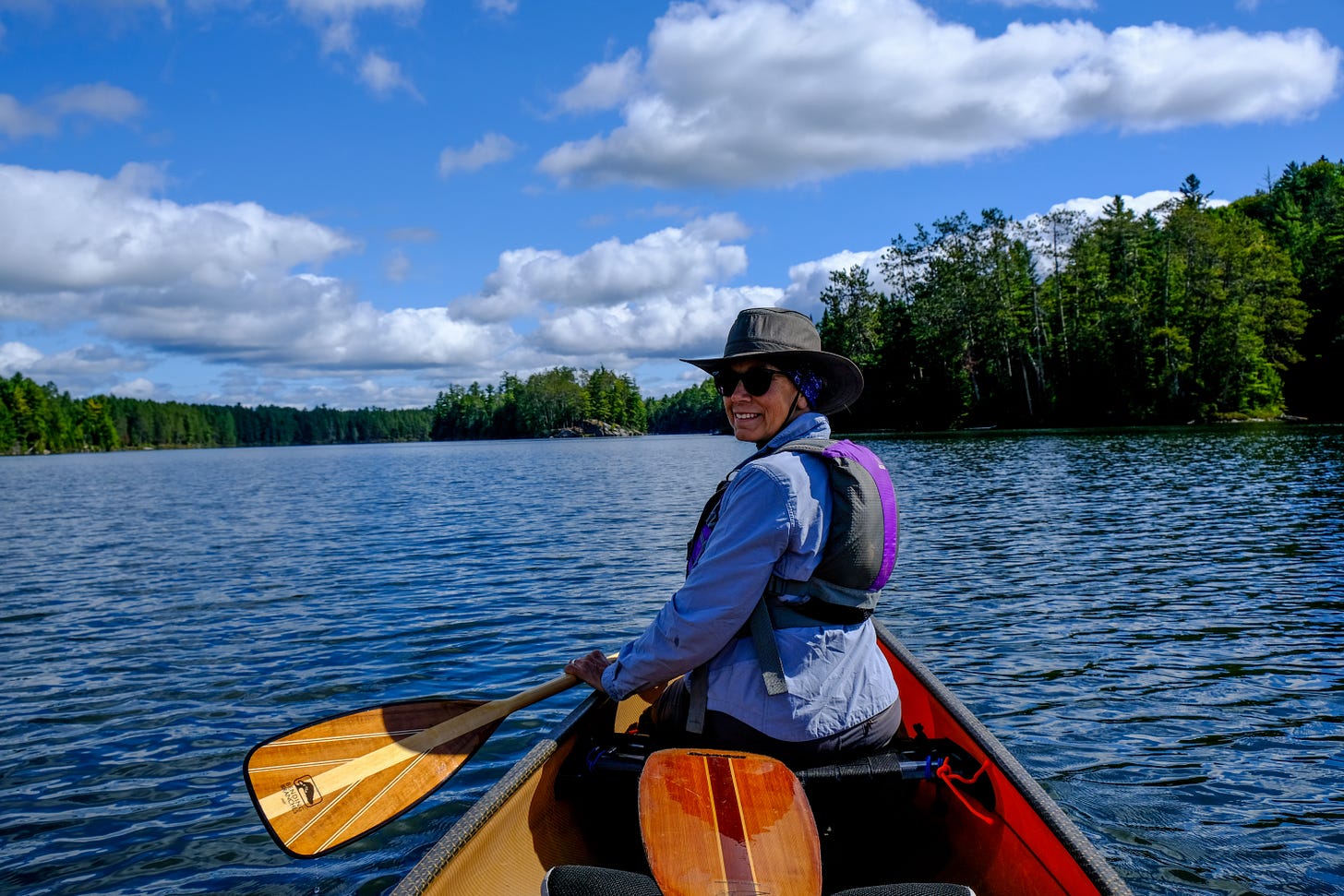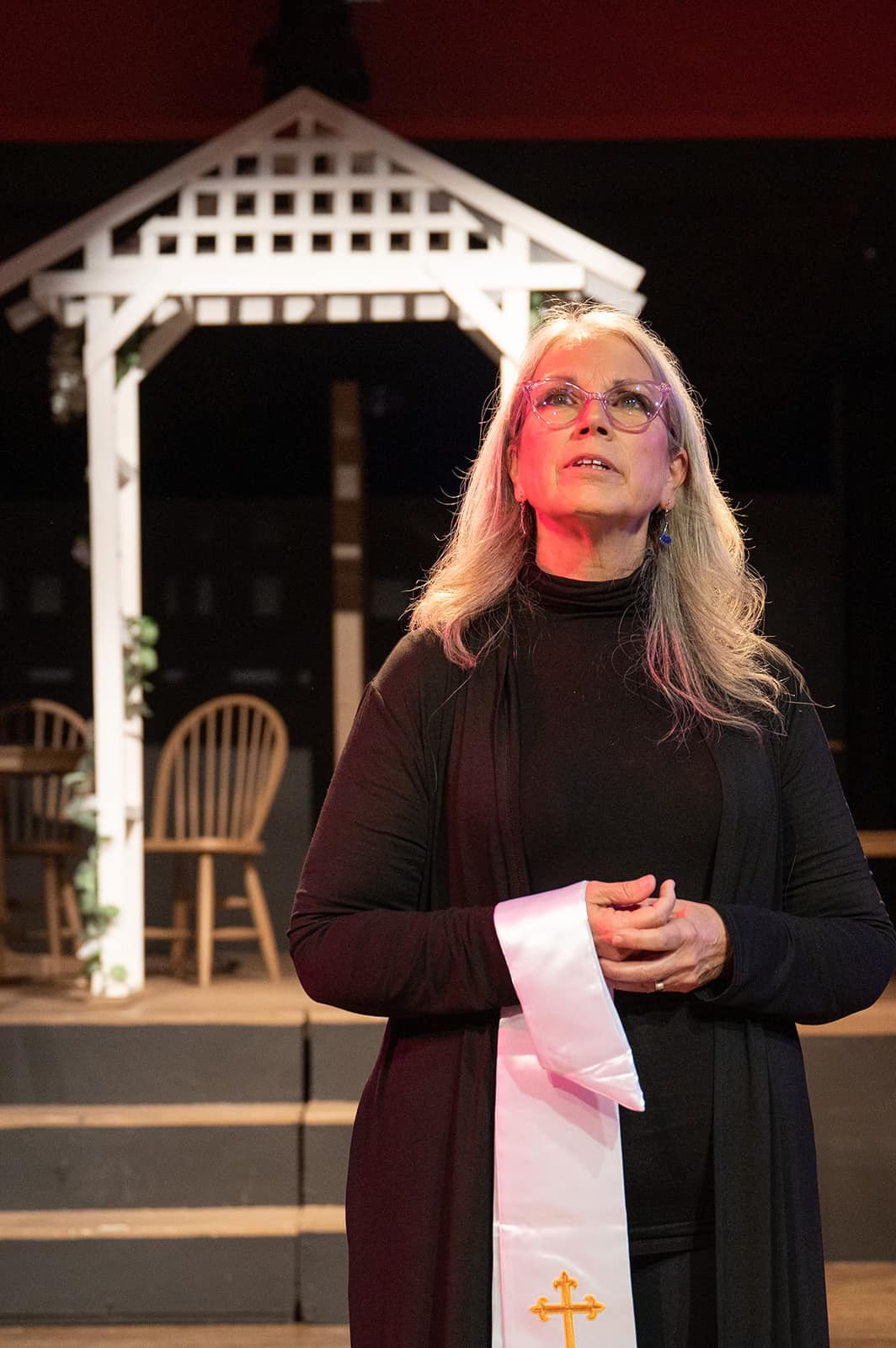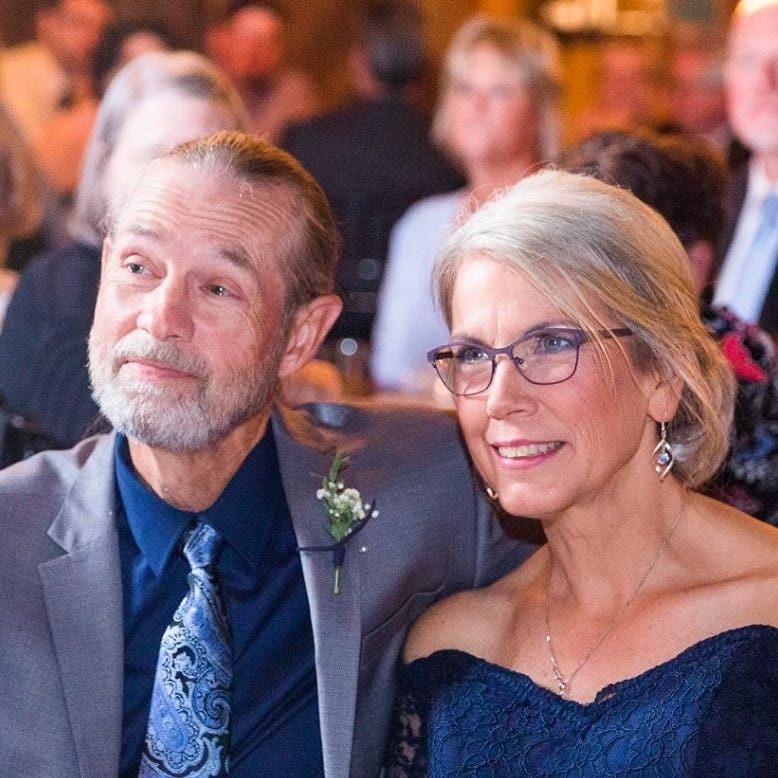Vicki is married to Don “Stone” Kensinger, and is one of the gentlest of souls. Perhaps it is all the time she spends in nature (and in Gretna)!
Tell us about your journey to Gretna.
When Don and I married in 2004, we settled into a home in Campbelltown so that the two youngest of our 7 children (12 and 16 at that time) could finish school in Palmyra SD. Several of our older boys were still in college at the time (some had graduated) and in need of beds during summers and holidays, so the home we intentionally purchased was large enough to accommodate whatever configuration of the family might need a place to call home at any given time.
We loved that place dearly—I spent much of my time there removing lawn and planting native plants in an effort to give something back to the earth there. It was a deeply healing practice for both of us (the earth and myself). But when it was time to move on, I handed it with Love to the next family, knowing they might wipe that slate clean—like a Tibetan Mandala that had been prayed over and then released.
I had initially wanted to move to the northeast—Vermont or Maine. Something about the ethos of those places drew me, along with the mountains and lakes. I was ready for some distance and for someplace entirely new in order to begin a new life with Don and to individuate from my role as “mother.”
But by then, our oldest had given us three (of our now ten) grandchildren, so no matter the draw to start a new life somewhere else, the draw to those we loved was stronger. And we wound up moving only so far as Mount Gretna, where we had discovered a similar ethos of arts, culture, nature, and community, when renting here (temporarily, we thought) after the sale of our home. While strolling the streets and meeting the people, we fell for the place. I often would comment on the Little Red Cottage on Brown Avenue, though I had not mentioned it to our realtor. So when it came on the market, and I found her voicemail on my phone, when coming out of a 3-day retreat about “a house on Brown that I really think you would like,” it felt providential.
Late each summer, you and Don can be seen carrying packs and canoes and all sorts of intriguing equipment around on your walks, preparing for your journey into the wilds.
I discovered the joy of camping when my children were young and we were poor. It was something we could do for vacation with limited funds. Quickly, I came to understand that the bonding that happened between us as a family and with the earth made it a magical activity. Then, in 2001, during a difficult time of grief and healing, I responded to an invitation in a bulletin to join a group that was going canoe camping in Algonquin. I found that trip to be so profoundly healing for me—like coming home—that I was hooked.
It was about ten years before Don decided to join me on those trips north, seeing the glow upon my return (and missing me while I was gone). The beauty, solitude, silence, and vastness of that place make us feel incredibly small in its presence and, at the same time, a part of something exquisitely grand.
When we are there, I feel present in a way that is hard to achieve in everyday life. There, I am seldom in my head, distracted or thinking about anything other than what is right there before me in that time and place. Not unlike those trips with my young children, the experience of canoe camping brings Don and me closer as well. Our hearts are truly in tandem with each other there. That is our home place of belonging.
We learned the ropes of backcountry canoe tripping from those first leaders, who have become fast friends. They taught us the basics of paddling (we have since taken ACA courses, and I have participated in several canoe symposiums, where I learned some additional freestyle solo paddling skills), campcraft, and how to dehydrate meals.
Each winter, I spend about a month preparing, dehydrating, and packaging those meals so that when “soft water” season arrives, we are ready to go for as long as our hearts desire—and our bodies can take us. And as you have seen, we also try to prepare our bodies for the rigors and the simplicity of “carrying all that we need on our backs.”
I am usually in the Algonquin backcountry for at least 6 weeks each year (plus, more recently, two weeks each winter, where we appreciate the deep snow, the frozen lakes, and the quiet stillness of the landscape). I have taken a few solo trips in the past, and each year I go on at least one trip with a girlfriend or two.
The longest single backcountry canoe trip Don and I have taken to date was 18 days. That was a lot of food to carry: We portage our gear, canoes, and food along trails up to three miles in length between lakes each day. These days we try to keep the weight of any one pack (or canoe) to 40 pounds, so the longer trips take some creative planning.
Often, we do not see another party for days at a time, especially in the shoulder seasons when 30-degree nights keep many away. It’s hard to describe really, the peace and belonging, the incredible darkness, the silence and solitude, the beauty.
One of the things I appreciate while I am there is practicing my photography. I find it to be a way to attend to that beauty more intimately. I try to capture the feeling I have in that place through my photographs. Looking through them after we return, even years later, I am often brought back to the feeling I had in that moment.
Tell us about your recent foray into theater.
Oh, I’ve only ever done one show! I do love attending live theater for the way it makes me feel things, and for the human stories it can uniquely tell. Last winter, inspired by the bravery of several of my granddaughters, who are involved in theater, I decided it was time to be brave myself. Hershey Area Playhouse was planning to do Our Town, a play I loved, and I thought perhaps that was my shot.
Honestly, I was so scared to audition, that I sent a video audition for the first call! I somehow landed the role of Stage Manager. It was a meaningful experience for me, and I loved being part of that family, but I’m not sure if I’ll ever do it again. Roles for women my age are not terribly common, and many local actors have years of experience over me for the few that do come up. Plus, I’d need to plan time for the rehearsal and show schedule around canoe trips to the north!
What did you do before becoming such an involved part of Mt. Gretna life?
I was married quite young (you can fill in the blanks here) and before I knew it, had a handful of children to nurture. So, most of my adult life was spent mothering. I did odd jobs here and there to help meet our financial needs—waiting tables, providing home daycare, working the desk part-time at the pediatrician’s office, etc. At one time in my life, I dreamed of becoming a midwife, but ironically, giving birth to my fifth child prematurely ended that dream.
At midlife, my life brought me to a brink where I fell deeply, then delved into spiritual traditions and practices for answers. I trained for three years in the art of Spiritual Direction, which is in many ways just another kind of midwifery—companioning another into life (really, just listening to and loving others as they are trying to make sense of what it means to be human).
For a few years, I sat with individuals and led a variety of retreats—including a year-long women’s program I called NWSE (Nurturing Women in the Sanctuary of Earth), where we sought to deepen our relationships in each of those four directions: to Self, to Other women, to the Earth, and to Whatever You Name as the Sacred. I also companioned a few women’s groups into the backcountry on canoe trips, where it was a delight to witness them come alive and awake to the Earth and themselves in new ways. These days, I am more drawn to, and content with solitude.
Favorite recipe on your trips to the wilderness?
Hmm…funny, the one that came instantly to mind was “Sausage and Eggs with Rick,” so I’ll go with that. It’s a joke now because one year, when I was making the labels for the packs of this meal, I mistyped Rice as Rick, and the name stuck.
Basically, I make a polenta and egg mixture, which I bake to firmness in the oven at home. This mixture is then dehydrated along with cooked and rinsed ground sausage. (The polenta helps the mixture to absorb water better in the rehydration process out in the backcountry). Sometimes, I cook and dehydrate rice, but often, I use brown minute rice. I’ll sometimes toss in dehydrated vegetables—mushrooms, onions, peppers, spinach—and take some cheese along (hard cheese lasts surprisingly long without refrigeration). It all gets rehydrated and heated in a little olive oil out there over the stick stove. Not my ”fanciest” meal, but one of our favorites.








Fascinating!!!
Beautiful!